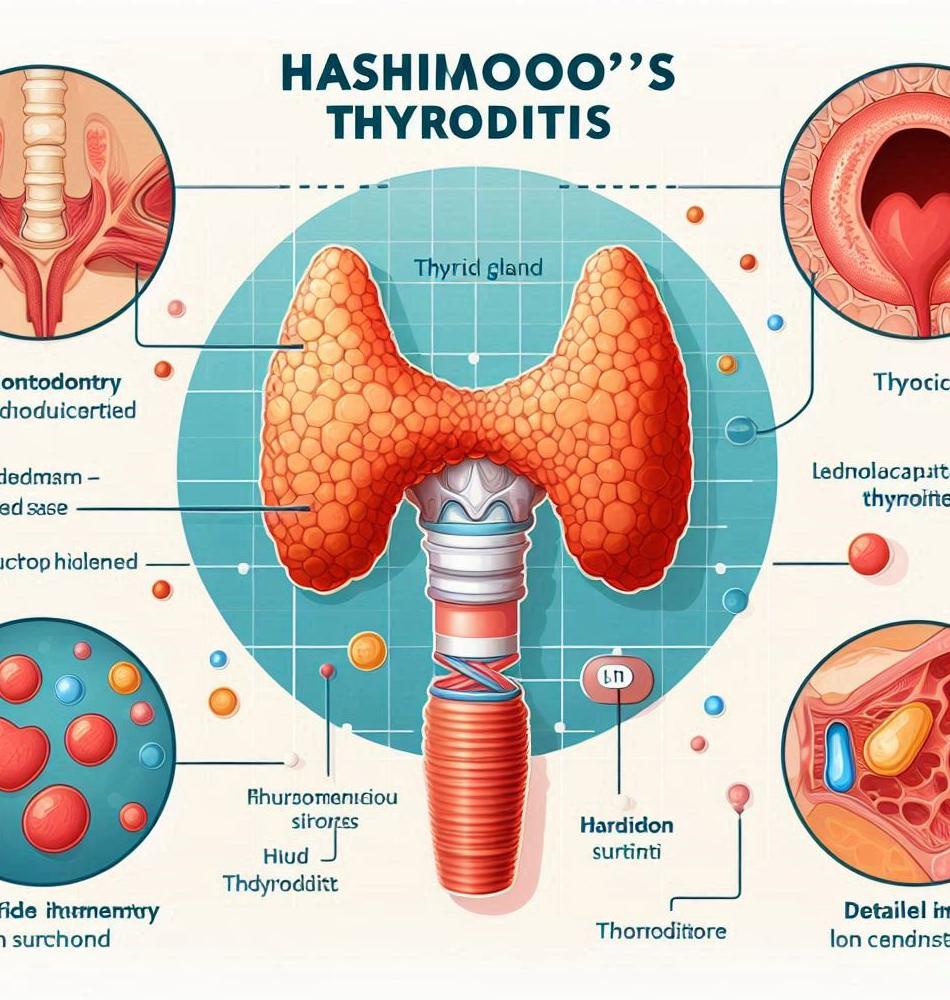Understanding How to Treat Hashimoto's Disease: A Comprehensive Guide 🩺
Hashimoto's Disease is something that crosses the minds of many who experience fatigue, weight gain, or unexplained mood swings. But what exactly is it? How does it affect the body? And more importantly, how can it be treated? Let’s delve deep into the complexities of this autoimmune disorder, exploring the mechanisms at play, available treatments, and tips for living a fulfilling life while managing this condition.
What is Hashimoto's Disease? 🧬
Hashimoto's Disease, or Hashimoto's thyroiditis, is an autoimmune condition where the immune system attacks the thyroid gland. This butterfly-shaped gland plays a crucial role in regulating metabolism, energy generation, and hormonal balance. When Hashimoto's occurs, the thyroid often becomes inflamed and can lead to hypothyroidism, where inadequate hormone production causes various body functions to slow down.
Signs and Symptoms of Hashimoto's Disease 😩
Understanding the signs and symptoms of Hashimoto's is vital for proper diagnosis. Many individuals suffer silently, mistaking their symptoms for normal life fatigue.
Common Symptoms Include: 📋
- Fatigue
- Weight gain
- Cold intolerance
- Dry skin and hair
- Constipation
- Depression
- Muscle weakness
- Joint pain
- Heavy or irregular menstrual periods
- Puffy face
These symptoms can vary from person to person. If you experience multiple symptoms, consulting a physician for a thorough evaluation is crucial.
How is Hashimoto's Disease Diagnosed? 🔎
Diagnosing Hashimoto's involves a combination of medical history review and lab tests to assess thyroid function. Here’s what to expect:
Diagnostic Steps Include: 📊
- Thyroid Function Tests: Blood tests measure levels of Thyroid Stimulating Hormone (TSH) and Thyroxine (T4).
- Antibody Tests: Tests for presence of antibodies such as anti-thyroid peroxidase (TPO) antibodies help confirm autoimmune activity.
- Ultrasound: A thyroid ultrasound can identify enlargement or nodules in the thyroid gland.
If diagnosed early, effective treatment can be initiated, reducing potential complications.
Effective Treatment Approaches for Hashimoto's Disease 🏥
While there is no cure for Hashimoto's, various treatment methods can help manage the condition effectively. Here are the primary treatments and lifestyle changes you can employ.
Hormone Replacement Therapy 🌟
The primary standard of treatment for Hashimoto's Disease is thyroid hormone replacement therapy. This involves taking synthetic thyroid hormones, like Levothyroxine, to normalize hormone levels.
Dosage and Monitoring: 📅
Finding the right dosage can take time and will likely require routine blood tests to monitor TSH and T4 levels until the ideal balance is achieved.
Dietary Changes 🍏
Nutrition plays a significant role in managing Hashimoto's. Here are dietary adjustments that can support thyroid health:
- Increase consumption of selenium-rich foods such as Brazil nuts and sunflower seeds, as they can boost thyroid function.
- Consider a gluten-free diet, as some studies suggest a link between gluten and autoimmune disorders.
- Incorporate anti-inflammatory foods like fatty fish, fruits, vegetables, and whole grains.
- Avoid highly processed foods, high-sugar snacks, and excessive caffeine.
Stress Management Techniques 🧘
Stress can exacerbate any autoimmune condition, including Hashimoto's. Incorporating stress management techniques can have a positive impact on overall symptoms.
Effective Stress Reduction Methods: 🌸
- Meditation and mindfulness practices for mental clarity.
- Yoga to enhance flexibility and reduce tension.
- Engaging in regular physical activities such as walking or swimming.
- Pursuing hobbies and interests that bring joy.
Women and Hashimoto's Disease 💁♀️
Women are statistically more prone to Hashimoto’s, especially post-pregnancy or during menopause. Paying attention to hormonal shifts can help manage symptoms effectively. Here is what women should consider:
Addressing Menstrual Irregularities: 🔄
- Monitoring menstrual cycles and discussing any irregularities with a healthcare professional.
- Understanding the implications of elevated TSH on menstrual health.
Post-Pregnancy Thyroid Monitoring: 👶
Women who experience thyroid issues during pregnancy should have regular checkups after delivering to check TSH levels, as autoimmune conditions can arise or worsen during postpartum recovery.
Frequently Asked Questions about Hashimoto's Disease ❓
- Is Hashimoto's Disease curable? No, it is a manageable condition that requires lifelong treatment.
- Can diet affect Hashimoto's symptoms? Yes, a balanced and nutrient-rich diet can support thyroid function.
- Are there specific vitamins that help with Hashimoto’s Disease? Vitamins like Vitamin D and B12 can support immune function.
- Can physical activity help with Hashimoto's symptoms? Regular exercise can manage weight and boost energy levels.
Living with Hashimoto's Disease: Tips for a Better Quality of Life 🌞
Beyond traditional treatments, managing Hashimoto's involves adopting a holistic lifestyle that prioritizes overall well-being.
Establish a Routine: ⏰
Keeping a consistent daily routine can help regulate your body’s processes. A sleep schedule, meal planning, and medication reminders are essential.
Support and Community: 🤝
Joining support groups, both online and offline, can provide insight into shared experiences. Connecting with others facing similar challenges can be incredibly uplifting.
Regular Check-ups and Monitoring: 🩺
Ensure you have regular appointments with your healthcare provider to reassess and adjust treatment as necessary. Understanding your condition better will empower you in managing it effectively.
Conclusion 📖
Hashimoto's Disease is a multifaceted condition that requires a blend of medical intervention, lifestyle changes, and ongoing assessment. By proactively addressing symptoms and working with healthcare professionals, individuals can lead a life full of energy and health. Education about the disease, coupled with a supportive network and healthy adopting routines, can pave the way for successful management. Always remember, listening to your body and consulting with your physician is vital to finding the best personal approach for treating Hashimoto’s Disease.
.png)






